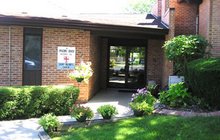
Luke 10:25-37
Over the last couple of years I’ve come to enjoy the TV show, Boston Legal. Granted, it is a bit ridiculous and outrageous in its portrayal of certain aspects of our society and office romance; although it’s probably more accurate than I care to admit. What I like about the show is it’s undertone of social justice. Each episode takes on a social cause and works it in to the office politics, in to the crime and trial, and most importantly in the brilliant closing statement of the trail lawyers. The writing is smart and provocative, looking at the nuances of the issue and the subtext the rides below the surface of cultural platitudes.
Our gospel reading this morning has a smart lawyer provoking Jesus. He really wants to push the issue of “Who is my neighbor?” This portion of the Gospel is part of an ongoing dialogue in Luke about what it really means to love God and love neighbor. The lawyers’ tone is somewhat sarcastic; this lawyer doesn’t want to really think about the neighbor. The lawyer wants to stay comfortable in his knowledge of the “law” and not get pushed into nuances and subtext of meaning. Besides, he’s sure he gets it and Jesus doesn’t.
But for Jesus the sublime is always more important than the socially accepted norm. Jesus sees below the surface and understands issues at their core. Jesus sees into people and knows what’s really in their heart. In response to the lawyers’ question he gives a pointed illustration, one the lawyer can’t fail to miss.
Who is my neighbor? In our world Jesus would push us to look carefully at all our norms, all the ways we categorize people and therefore deem them as acceptable or as folks we need not care about.
The dirty smelly homeless person walking up to you…
Kids in the mall wearing baggy black clothes, multi-colored hair, and black eye make up…
Dark skinned people…
People who don’t speak English…
Overweight…
Too thin…
Who is my neighbor? Well, only those who are normal, like me…
These are the arguments used by the Levite and the priest. In their minds they could say, “I don’t need to help this person because this person is defiled, impure, and just touching this person will make me bad…the law entitles me to walk on by.”
The same is true for us. The list of who we consider our neighbors, or not, goes on and on. We all use our prejudices and bias to justify in our heads our response to other people. We choose to criticize, belittle, and judge. At the very least we choose to look the other way. There are many broken people in this world. But not everyone in our profile of brokenness is in fact broken. Or at least not anymore broken than we are ourselves.
The Samaritan helps the injured man. It is like you or me helping the person who makes us the most uncomfortable. Or, better yet, it would like you or me being the injured person; helped by someone who makes us the most uncomfortable. Surely the initial thought of the injured man was, no, not you, not a Samaritan?
Think about it. How would you feel if you were suddenly in need of help? And the one person who stopped to help you was the person you are most afraid of. Would it feel like help? Probably not at first…
Who is my neighbor?
Many people in our suburbs, in this county, leave for work early in the morning. Come home at night pull into the attached garage and enter the house from the garage. We never go outside, or if we do we have tall fences around our property. We never even see our neighbors.
Who are they? Some of us have no idea.
In the end this Gospel is not just a question of “who is my neighbor?”
More importantly it is also a question of “What kind of a neighbor am I?”
The Gospel pushes us to consider not only the identity of our neighbor, but also, who we are.
Who am I?
And, then,
How do I love?
The real question of this Gospel becomes not who but how.
How do I love and how do I allow myself to be loved?
Think about it.
Then, go and do likewise.



No comments:
Post a Comment